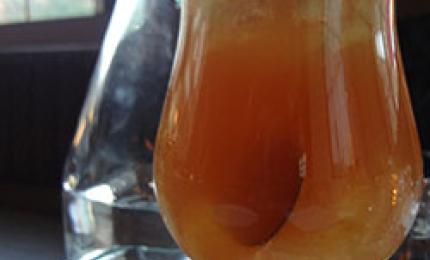African American Mystery Writers: A Historical and Thematic Study
This ambitious study examines the works of modern African American mystery writers within the social and historical contexts of African American literature on crime and justice. It begins with a historical overview that describes the movement by African American authors from slave narratives and antebellum newspapers into fiction writing, the work of early genre writers, such as Pauline Hopkins and Rudolph Fisher, the protest writers of the 1940s and 1950s, and the authors who followed in the 1960s.
Wicked Albany: Lawlessness and Liquor in the Prohibition Era
Albany, New York, experienced massive upheaval when the Volstead Act of 1919 established Prohibition. Crime already proliferated in the capital of the Empire State, with rival political machines stooping to corruption and the mob with their heavy-handed powers of persuasion. As it did nationwide, Prohibition in Albany served merely to force alcohol-related commerce underground and lawlessness and violence to the forefront of city activity.
Famous American Crimes and Trials
What do Lizzie Borden and O. J. Simpson have in common? Or the Lindbergh baby and Gary Gilmore? They were all the focus of famous crimes and/or trials in the United States. In this five-volume set, historical and contemporary cases that not only shocked the nation but that also became a part of the popular and legal culture of our country are discussed in vivid, and sometimes shocking, detail. Each chapter focuses on a different crime or trial, and explores the ways in which each became famous in its own time.
Blood on Her Hands
A comprehensive text that provides historical perspectives on the status of women; analysis of popular culture/mass media images of women offenders; and discussion of societal responses to women who kill.
Media Representations of September 11
The terrorist attacks on September 11th were unique and unprecedented in many ways, but the day will stand in our memories particularly because of our ability to watch the spectacle unfold. The blazing towers crumbling into dust, black smoke rising from the Pentagon, the unrecognizable remains of a fourth airplane in a quiet Pennsylvania field―these images, while disturbing and surreal, provide an important vehicle for interdisciplinary dialogue within media studies, showing us how horrific national disasters are depicted in various media.
Law Never Here: A Social History of African American Responses to Crime and Justice
On a more serious note, “Law Never Here”: A Social History of African American Responses to Crime and Justice (Greenwood, 1999) is a book that Alice Green and I - as African American criminologists - felt the need to write in response to the failure of many other books we had read to acknowledge the varied ways in which black people have responded to perceived oppression by the criminal justice system.
Popular Culture, Crime, and Justice
Popular Culture, Crime, and Justice (edited with Donna Hale) is a volume that offers an introduction to criminal justice as depicted in popular culture/mass media. The book was published by Wadsworth in 1998, and includes chapters by well-known scholars on topics such as violence in popular films, comic books and censorship, the “criminalizing” of popular culture, media and the police, and movie images of police women, of female attorneys, and of prisons. Incidentally, in the introduction, Donna and I mention Murder, She Wrote.
Out of the Woodpile: Black Characters in Crime and Detective Fiction
If you’re interested in reading about the images and stereotypes of black characters in mystery fiction try my Out of the Woodpile: Black Characters in Crime and Detective Fiction (Greenwood, 1991). I wrote it when I was living in Frankfort, Kentucky, just after finishing my dissertation. To my surprise, it was nominated for an Edgar (Mystery Writers of America) in the criticism/biography category.


